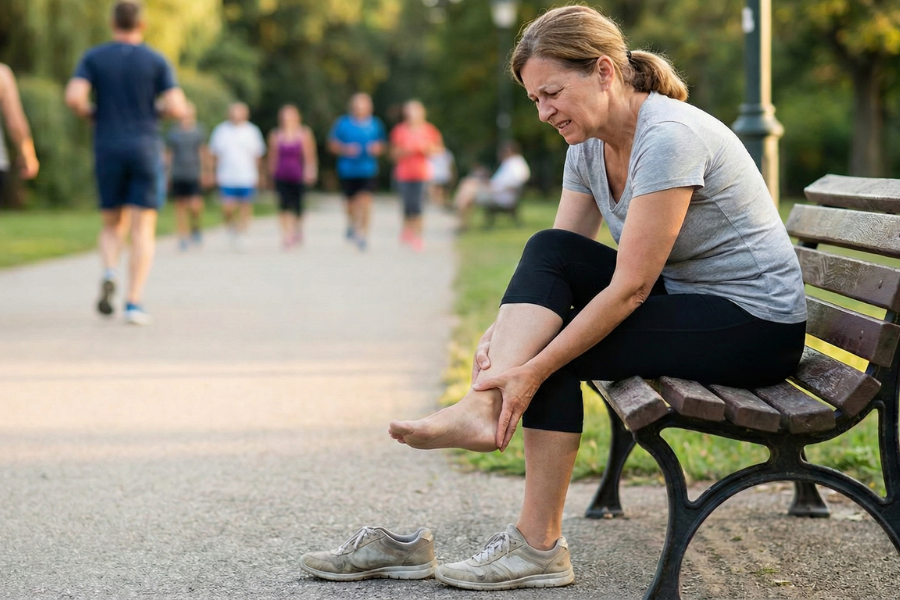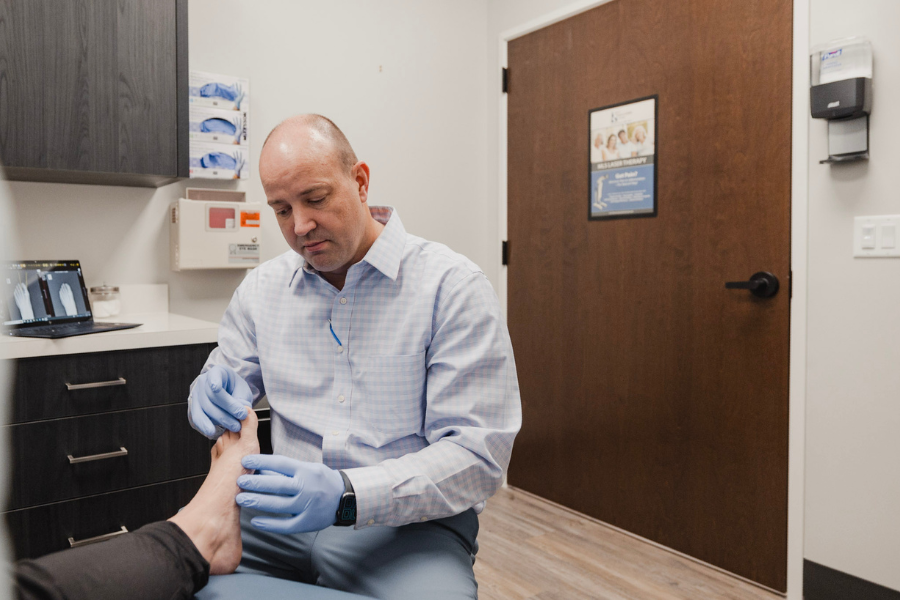
Alternating your footwear may be good for your health, foot health that is! The American Podiatric Medical Association recommends avoiding wearing the same shoes for several days in a row. In the case of running shoes, the cushioning needs time to reshape after an intense workout; otherwise it will quickly lose its purpose. Researchers suggest buying two identical pairs and then alternating them between workouts. With high heels, avoid wearing the same pair every day and focus on alternating heel heights.(Your feet & your calf muscles will thank you!)
Foot and ankle surgeons say the majority of their patients are women. But doctors say there are steps women can take to reduce high heel-related foot problems.
High-heeled shoes can cause pain, deformities and damage to the feet that can last a lifetime. High-heeled shoes crowd the toes, force the body’s weight onto the ball of the foot and disrupt the body’s alignment. Here are some of the common problems high-heeled shoes can cause:
Corns- Corns can form from repeated pressure on the skin.
Hammertoes- High-heeled shoes that crowd the toes together can contribute to hammertoes. This deformity occurs when the second, third, fourth or fifth toes become bent like a claw. Severe hammertoes may require surgery to relieve pain.
Haglund’s Deformity or “Pump Bump”- Pump-style shoes often cause significant pain by irritating a bony deformity some women have on the back of their heel, called a “pump bump.” This problem is common in young women who wear high heels almost every day. It can lead to blisters, bursitis, or Achilles tendonitis.
Neuromas- Pointed-toe and high-heeled shoes are the most common reasons why women develop painful neuromas. Neuroma symptoms appear gradually and include tingling, burning, numbness, or pain. Without treatment, a neuroma can lead to permanent nerve damage, making it difficult to walk without severe, shooting pain.
Ankle Sprains – High heels increase the risk for ankle sprains. Left untreated, sprains can lead to chronic ankle instability and potential arthritis.
Back Pain- High heels force women to stand and walk unnaturally, affecting the alignment of the ankles, knees, hips and lower back.
In women’s shoes, pain does not equal gain! By recognizing pain as a warning sign, wearing high heels in moderation, and seeking medical care when problems are in their early stages, women can stay fabulous on their feet!
If you have any questions with any foot or ankle issues you are experiencing, please contact Dr. Kovac at Idaho Foot and Ankle Center!
Content provided by ACFAS.org & APMA.org.

February 13, 2026
Find out how custom orthotics from Idaho Foot & Ankle Center can relieve pain and improve daily comfort—designed to fit your life and your feet.

January 23, 2026
Explore how Idaho Foot & Ankle Center treats plantar fasciitis and heel spurs with proven solutions that relieve pain and restore mobility.

December 5, 2025
Early foot exams help children walk, grow, and play pain-free. Our Idaho Falls podiatrists provide expert pediatric care for long-term wellness.
.png)
November 17, 2025
Ignoring foot pain can make things worse. Our Idaho Falls podiatrists offer expert diagnosis and treatment for lasting relief and improved mobility.